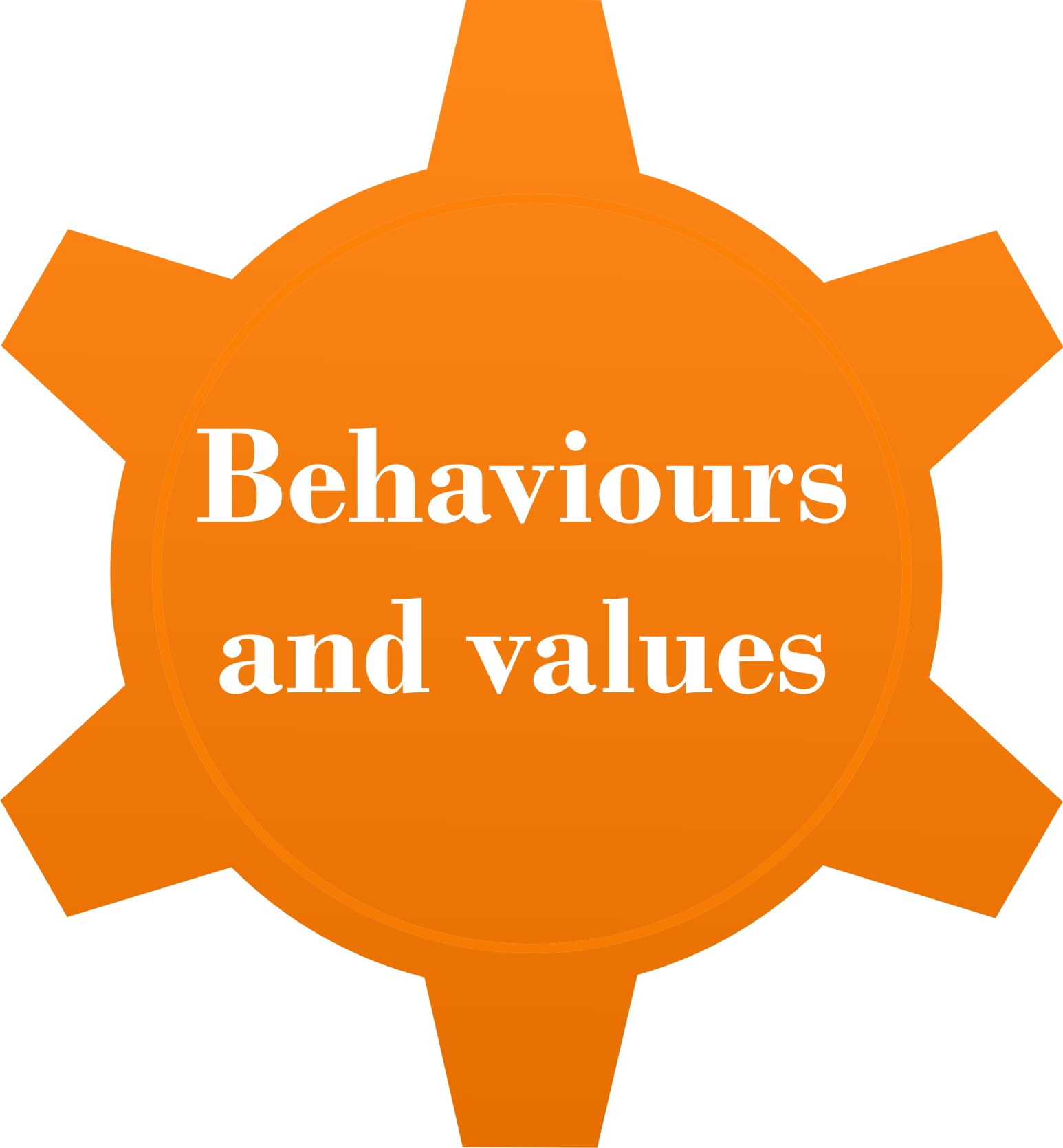Employability Enhancement Hub
Behaviours and values
“You Have”

Ways of acting, reflecting an inner moral compass. These are how you act and immediately react to a person or situation, and in accordance to what ethics you prioritise and act. Also reflect how you perceive others and yourself. This is what you do or what you have.
Confidence
Simply a ‘presence’, an assertive faith in own abilities, manifesting itself in manners and behaviours, and it is linked with emotional stability, a sense of purpose and a positive mind-set.
Confidence is a self-assurance that when things turn to worse, one has the ability to correct them.
Confidence is a self-assurance that when things turn to worse, one has the ability to correct them.
Dealing with Conflict
The ability to deal with naturally occurring conflicts healthily, that is, in a rational and balanced manner. In leaders, this also means neutralising or resolving conflicts in timely manner and not letting them to grow silently, creating trusting environments and sustaining workplace momentum.
Listening and Questioning
Listens attentively and actively, does not simply wait for his turn to speak. Asks sufficient amount of questions in order to avoid misunderstandings. Always carefully listens to answers.
Office Etiquette
A common courtesy in a workplace, allowing the whole office being productive by not disrupting each other’s work-lives. Show up on time, pay attention at meetings, do not wear revealing clothing and respect others’ and company’s property. Being loud is the most quoted bad office manner.
Quality Control
Quality control is a procedure aiming to assess quality standards in place and compare them against targets, in all areas of production or service. People oriented on quality are steadfast, and single-mindedly oriented on reaching and maintaining the given quality standards, both in products manufactured or in service provided.
Time Management
The ability to effectively use the limited amount of time available. Involves flexibility to deal with unexpected, and planning of routines in a way to maximising output per time unit (hour/day/…). Reflects both in professional and in personal lives.
Contributing to discussions
Effective input to meetings, large or small. Formulate ideas in appropriate manner, focuses on the issue, is not afraid to raise negative concerns and dissatisfaction to highlight problems. Listens attentively and is able to make points clearly, appropriately agrees or disagrees with other attendees and is able to sum up the discussion.
Global Mindset
It is a predisposition to be culturally adaptable and consciously notice common patterns across various cultures. It is also ability to relate to people from different cultures both on intellectual and on emotional level. Effectively identify opportunities across cultures and maximize a firm’s global potential.
Networking
The ability to make and sustain professional relationships, which potentially could benefit one’s career or business development. Individuals in the network can offer valuable advice or meaningful assistance.
Essentially a list of people whom are you willing to help and who are willing to help you.
Essentially a list of people whom are you willing to help and who are willing to help you.
Problem Solving
Shows interest in finding the cause of unfamiliar problems as well as capacity to understand the issue by breaking it in smaller parts, identify implications and propose an effective solution to resolve the problem.
Problem solving individuals think both creatively and logically to overcome presented obstacles.
Problem solving individuals think both creatively and logically to overcome presented obstacles.
Strong Work Ethics
This is a person’s attitude towards work: he takes pride in his job, shows commitment to it and is willing to be accountable for the work he has performed. Such person shows a sense of responsibility, attention to quality, dedication and is punctual and positive. It is a collection of moral principles one uses in his job.